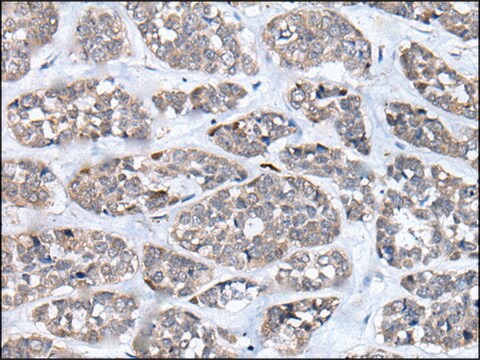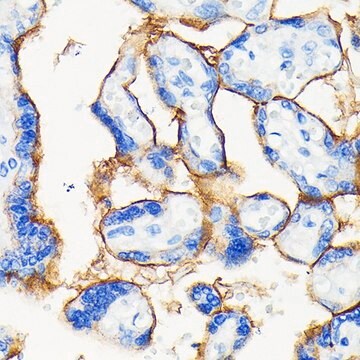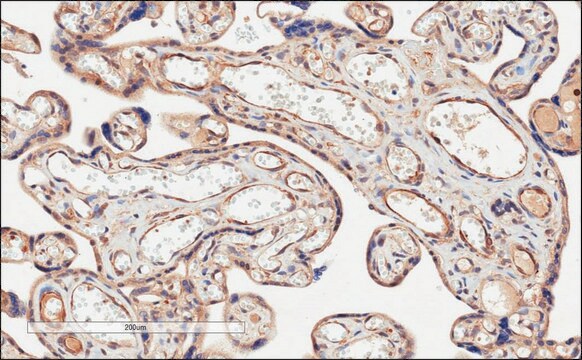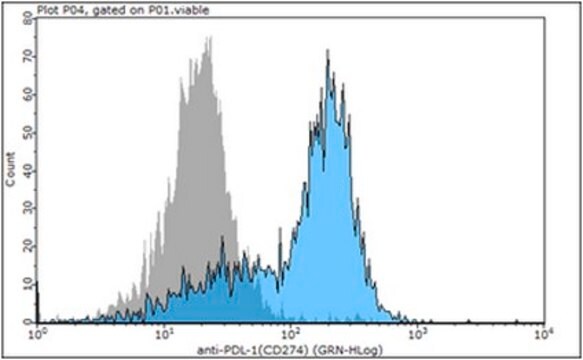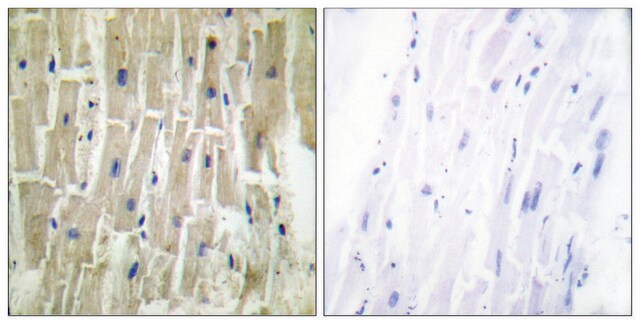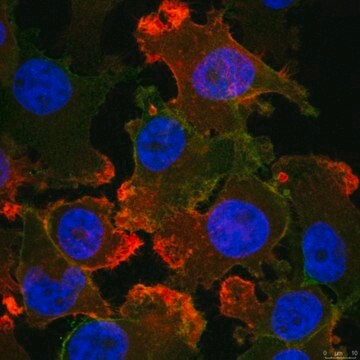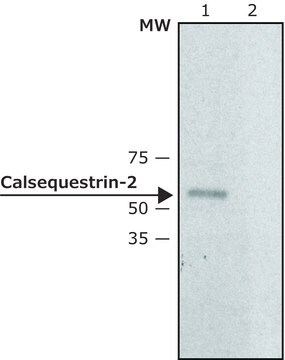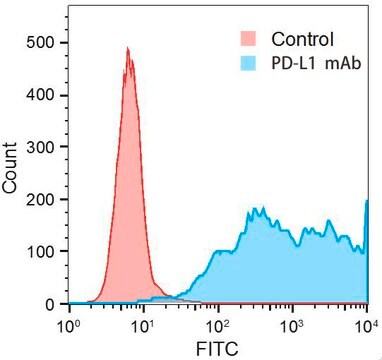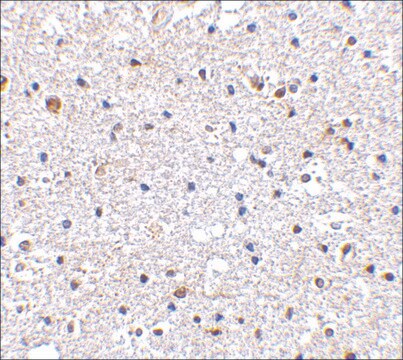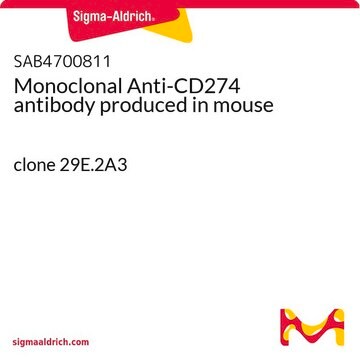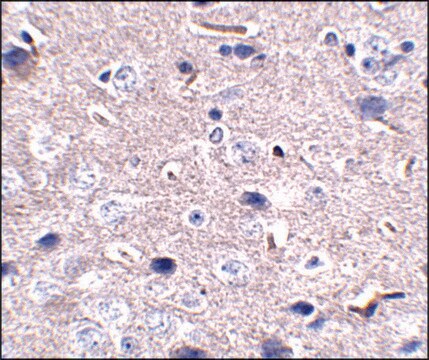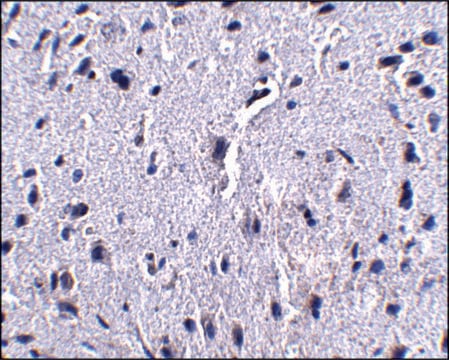ABC324
Anti-PDL-1 Antibody
from rabbit, purified by affinity chromatography
Synonym(s):
PDL-1 Antibody, PDL-1, Programmed cell death 1 ligand-1, programmed death ligand 1, PD-L1, B7-H1
About This Item
Recommended Products
biological source
rabbit
Quality Level
antibody form
affinity isolated antibody
antibody product type
primary antibodies
clone
polyclonal
purified by
affinity chromatography
species reactivity
human
technique(s)
immunofluorescence: suitable
immunohistochemistry: suitable (paraffin)
western blot: suitable
UniProt accession no.
shipped in
wet ice
General description
Immunogen
Application
Immunofluorescence Analysis: 20 μg/mL from a representative lot detected PDL-1 in human heart tissue.
Apoptosis & Cancer
Apoptosis - Additional
Quality
Western Blotting Analysis: 1 µg/mL of this antibody detected PDL-1 in 15 µg of Raji cell lysate.
Target description
Physical form
Storage and Stability
Analysis Note
Raji cell lysate
Other Notes
Disclaimer
Not finding the right product?
Try our Product Selector Tool.
recommended
Storage Class
10 - Combustible liquids
wgk_germany
WGK 2
Certificates of Analysis (COA)
Search for Certificates of Analysis (COA) by entering the products Lot/Batch Number. Lot and Batch Numbers can be found on a product’s label following the words ‘Lot’ or ‘Batch’.
Already Own This Product?
Find documentation for the products that you have recently purchased in the Document Library.
Customers Also Viewed
Our team of scientists has experience in all areas of research including Life Science, Material Science, Chemical Synthesis, Chromatography, Analytical and many others.
Contact Technical Service